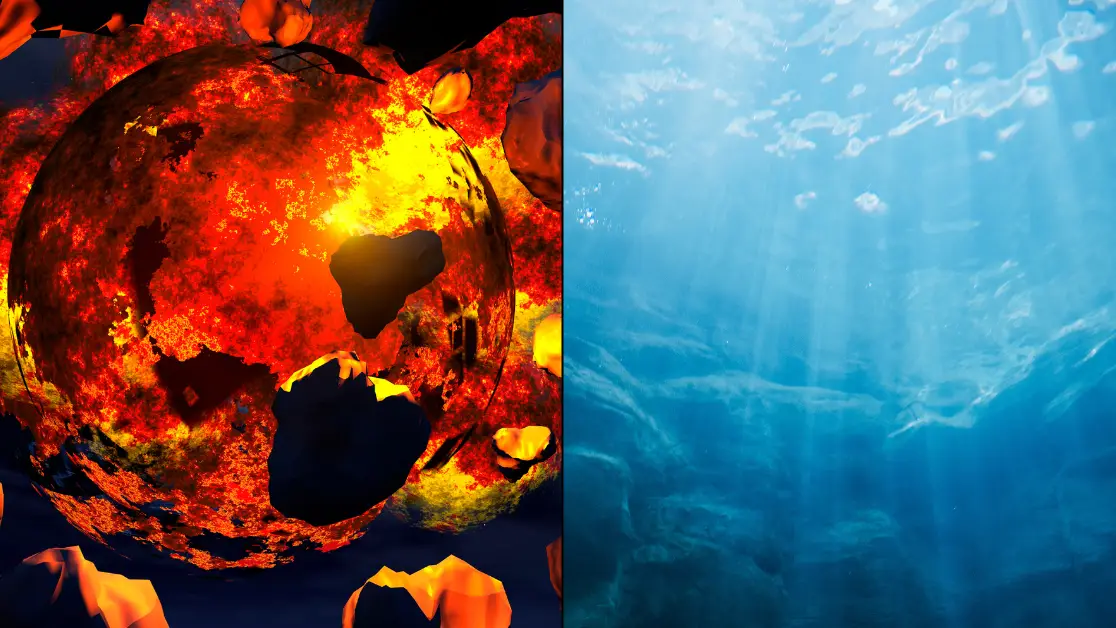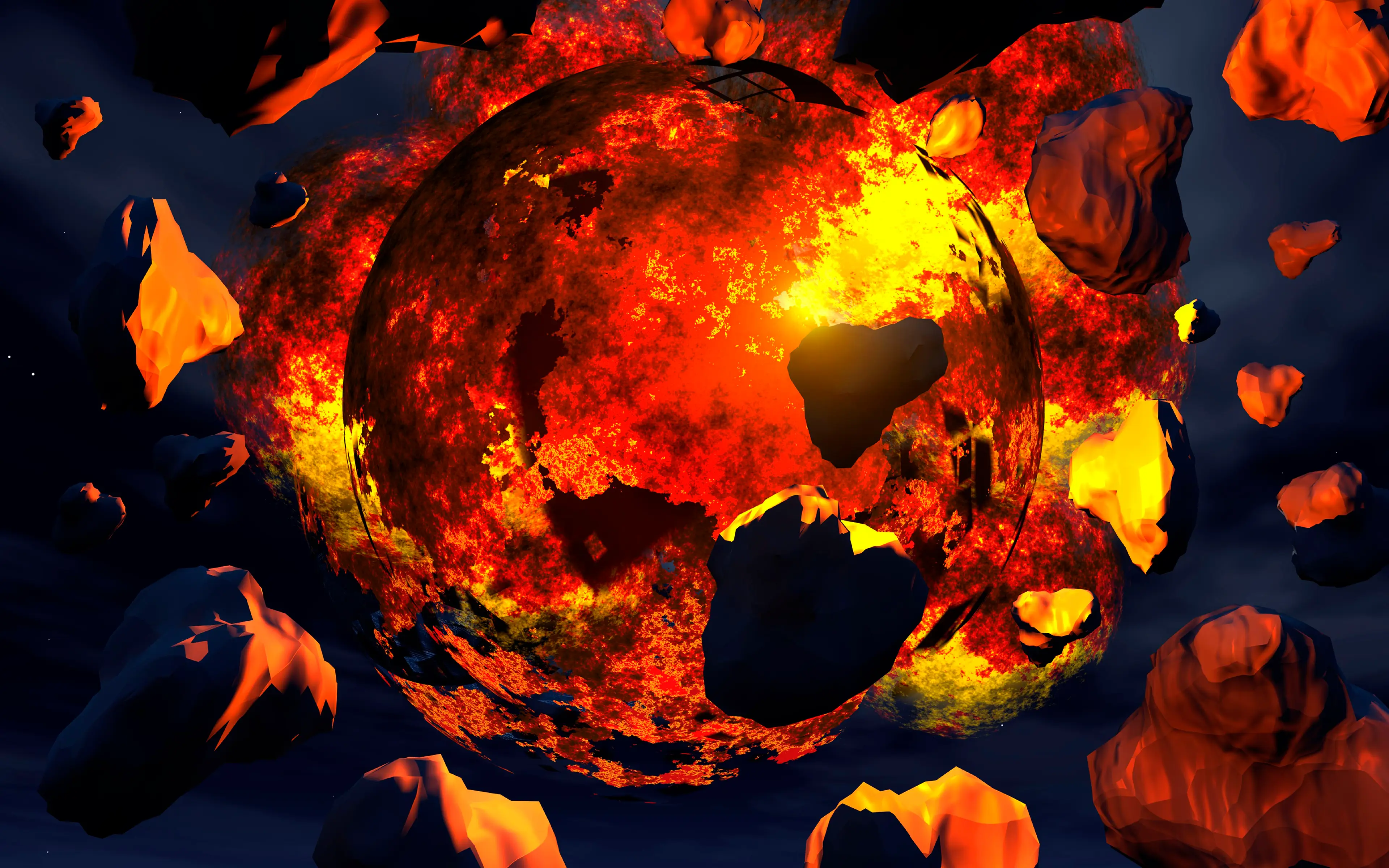
Scientists have uncovered an underwater event that wiped out nearly all life in a groundbreaking discovery.
The new study has shed light on what happened to lead to a whopping 90 percent of life being totally wiped out from the Earth.
It’s said this catastrophe happened roughly 250 million years ago and it’s even suggested to be more fatal than the asteroid that famously saw the end of the dinosaurs on this planet.
Published in the journal Science, the UK's University of Bristol and China University of Geosciences (Wuhan) researchers are claiming that El Niños were responsible for causing the climate to vary wildly and forests to be killed off.
Advert

You might have heard of El Niños before (and I’m not talking about football) as it’s the weather phenomena that cause sea surfaces to warm up drastically.
It typically takes place in the central and eastern Pacific Ocean. An El Niño is declared when sea temperatures in the tropical eastern Pacific rise 0.5 °C above the long-term average.
And while volcanic activity definitely played a big role in the ‘Great Dying’ (the worst mass extinction in Earth’s history, also known as the Permian-Triassic extinction), experts say the impact of these El Niños shouldn’t be overlooked.
China University of Geosciences’ Professor Yadong Sun claims that oxygen isotopes in fossils suggest they could have been greatly involved in this mass loss of life.
He said: “Most life failed to adapt to these conditions, but thankfully a few things survived, without which we wouldn’t be here today. It was nearly, but not quite, the end of life on Earth.”

And co-lead author of this study, Dr Alexander Farnsworth, from the University of Bristol, added: “Climate warming alone cannot drive such devastating extinctions because, as we are seeing today, when the tropics become too hot, species migrate to the cooler, higher latitudes.
“Our research has revealed that increased greenhouse gases don’t just make the majority of the planet warmer, they also increase weather and climate variability making it even more 'wild' and difficult for life to survive.”
In reality, the exact cause of the Great Dying remains somewhat uncertain but it’s pretty complicated.
As well as so much time having obviously passed since, there’s a scarcity of fossils to study and a complexity of evidence. Either way, scientists know something big happened to have such a big consequence.
Topics: Science, Environment, History